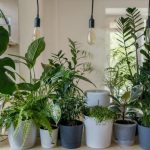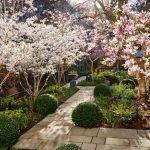A garden in full bloom is a sight to behold, an explosion of color and life that brings joy to all who witness it. However, achieving this level of horticultural success requires more than just putting plants in the ground. It involves knowing the right techniques and tricks that can turn your garden into a haven of beautiful blooms. In this article, we’ll delve into proven planting tips that will help you create a garden bursting with vibrant and healthy flowers.
1. Soil Enrichment
The first step to ensure beautiful blooms is preparing your soil. Test the pH and nutrient levels of your soil and amend it as needed. Organic matter like compost improves soil structure and provides essential nutrients for your flowers to thrive.
2. Select the Right Flowers
Choose flowers that are well-suited to your local climate and conditions. Research your region’s hardiness zone and pick flowers that are known to flourish in your area. Understanding your specific climate and soil type is essential for success.
3. Planting Depth
Different flowers have different planting depth requirements. Consult the instructions on seed packets or plant labels and ensure you plant your flowers at the correct depth. Planting too shallow or too deep can hinder germination and growth.
4. Proper Spacing
Overcrowding can lead to poor air circulation, increased disease risk, and competition for resources among your flowers. Adhere to recommended spacing guidelines for each type of flower to ensure they have the space they need to thrive.
5. Watering Wisely
Water is essential, but overwatering or underwatering can be detrimental. Understand the water requirements of your flowers. Monitor soil moisture and water when the soil is dry to the touch but not parched.
6. Mulch for Protection
A layer of organic mulch around your flowers serves several functions. It conserves moisture, suppresses weed growth, regulates soil temperature, and improves soil quality. Mulching is a key element in maintaining a healthy garden.
7. Pruning and Maintenance
Regular pruning and maintenance are essential to keep your garden in top shape. Remove dead or damaged parts, spent flowers, and overgrowth. This encourages new growth and helps maintain the shape and health of your flowers.
8. Fertilization Fundamentals
Your flowers need proper nutrition to bloom beautifully. Choose the right fertilizers, whether organic or synthetic, and apply them at the correct times and in the right quantities. Understanding the nutritional needs of your flowers is crucial for their health.
9. Pest and Disease Management
Vigilance is important when it comes to pests and diseases that can affect your blooms. Early detection is vital to prevent problems from spreading. Employ natural or chemical remedies as needed to protect your flowers.
10. Seasonal Adjustments
As seasons change, so do the needs of your garden. Adapt your care routine for watering, pruning, and fertilizing to match the evolving requirements of your flowers as they progress from seedlings to beautiful blooms.
In conclusion, creating a garden filled with beautiful blooms requires dedication and care. By following these planting tips, you can transform your garden into a vibrant tapestry of colors and fragrances. It’s not just about planting flowers; it’s about nurturing life and witnessing the wonder of nature’s beauty. So, embrace these proven tips and watch your garden burst into a symphony of blossoms. Happy gardening!

















Add Comment